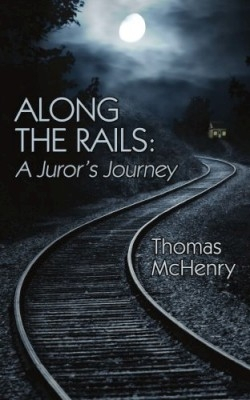Along the Rails
A Juror's Journey
I deserve what I am getting. —Last words of &193;ngel Maturino Reséndiz June 27 2006 Huntsville Texas
The man dubbed The Railway Killer is a self-appointed Angel of Death whose victims’ homes back up to train tracks. He claims immortality and believes his violence is divine punishment for evildoers who work against God’s wishes. Houston prosecutors maintain that these signs of paranoid schizophrenia and other disorders are but a carefully managed smokescreen. The questions to be settled in this case are simple: is he sane and should he face the execution chamber? This juror’s view of a high-profile capital murder trial is related with a sense of dire wonder underscoring the immensity of the moral decision.
After the jury duty notice arrives but before selection—when actually serving is an abstract possibility—the author’s attitude is one of flippant interest. It is the direct stare of the inscrutable defendant that unsettles: the reality jurors must experience is quite sobering. “I really didn’t want to be forced to look at gruesome crime scene pictures or hear the sad and wrenching stories. I would rather have root canal surgery… anything but this.” McHenry’s humanist leanings include serious doubts about capital punishment but he is selected because the lawyers believe his decisions will be made on the case’s merits alone. Psychological experts for the prosecution and the defense compete to present the more compelling evaluation of Reséndiz’s mental capacity. The author integrates conflicting input and wavers considerably between favoring sanity or insanity. The method he uses when a final opinion must be rendered is surprisingly intuitive.
The facts of the crimes discussed in this book are ultra-violent. Their hideousness is not glossed over; as the jurors had to look so do the readers. The primary focus is on the constantly monitored twelve in the box in sequestration in the locked room with the verdict buzzer. The absolute isolation peculiar to juries can cause a feeling of disorientation. This jury tried to counter that adverse sensation by electing a capable collected NASA astronaut to lead deliberations. The emerging group dynamics are at first driven by the case but when the association matures the jurors find themselves with more power than they want.
McHenry has worked in airline sales but is now pursuing his first love movie acting. He processes surroundings through the prism of an actor’s sensibilities perhaps without realizing the distinction. Descriptions of the courtroom players and fellow jurors thoroughly communicate demeanor affect and personality in a few lines. He borders on hero-worship in the presence of District Attorney “Big Gun” Johnny Holmes. Superfluous re-statements of established facts pop into the otherwise reader-friendly text. They seem to have been retained to underscore the enormous weight of judging a person’s worthiness to live.
Not all jury trials involve media who knock on hotel windows in search of a scoop but big or small they each force members to confront core beliefs. “You can run but not hide from your feelings. There is a human transparency…” Registered voters without a proven technique for being excused from jury duty may be able to face their turns at playing God with a bit more composure by forearming themselves with Along the Rails.
Disclosure: This article is not an endorsement, but a review. The publisher of this book provided free copies of the book and paid a small fee to have their book reviewed by a professional reviewer. Foreword Reviews and Clarion Reviews make no guarantee that the publisher will receive a positive review. Foreword Magazine, Inc. is disclosing this in accordance with the Federal Trade Commission’s 16 CFR, Part 255.


